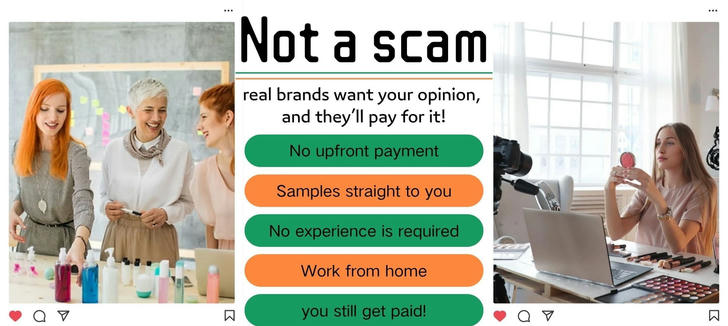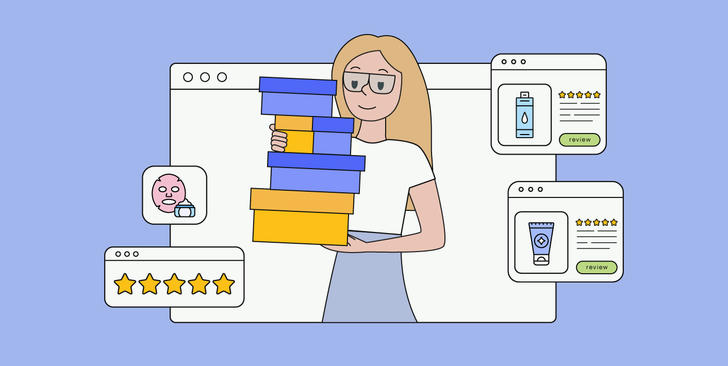How to Get Paid to Test Products at Home in Ireland
Do you want to become a product tester? It’s a great gig. You can work from home and get paid, you’ll even get paid to test products and offer feedback so companies can make changes and improvements. Not only will you be first in-the-know on what the big manufacturers are working on, you’ll have influenced the product’s design,There is no need to prepay for the product during the test period, and there is no need to return the product after the test.

How to Get Paid to Test Products at Home in Ireland
Product testing is becoming an increasingly popular way to earn income from home in Ireland. Brands and manufacturers want real feedback from real consumers. To get it, they pay individuals to try out their products and share honest reviews.
This process not only helps companies improve their goods before they reach store shelves, but also provides testers with monetary rewards, loyalty bonuses, gift cards, or vouchers. Depending on the category and project duration, earnings can vary—from modest rewards to premium fees for specialized testers.
Typical forms of payment include:
Direct bank transfers
Digital wallets like PayPal
Retail vouchers for popular stores in Ireland
Product bonuses with compensation
This type of work is usually done remotely, making it flexible for those with busy schedules.
How Much Do Product Testers Get Paid in Ireland?
Product testers in Ireland can expect to earn differently based on the product type and brand. Here's a rough breakdown of current average rates:
| Category | Typical Pay Range (per product/test cycle) |
|---|---|
| Beauty products | €10 – €35 |
| Natural skincare items | €15 – €50 |
| Eco-friendly home goods | €10 – €40 |
| Alcohol and wine tasting | €25 – €80 |
Premium projects, like those involving higher-end skincare routines or in-depth alcohol tasting panels, often offer more, especially if the feedback requires detailed reports or participation in follow-up surveys.
Keep in mind that consistent testers with accurate, detailed, and timely feedback often get invited to more—and better—opportunities.

How Do You Become a Product Tester from Home in Ireland?
Becoming a product tester doesn't require professional experience or formal education, but it does follow a few important steps:
Create a Testing Profile
Your testing profile should include key details such as age, gender, household size, skincare preferences, lifestyle choices (e.g., eco-conscious or not), and alcohol consumption (if any). This helps match you with relevant products.
Pass Screening Surveys
Before qualifying, many programs require quick screening questions. These ensure you’re the right demographic for the test.
Accept the Test Assignment
Once selected, you’ll receive the product to your address along with instructions on how to use it and what to report.
Submit Your Feedback
After the trial period, you’ll need to complete a feedback form—this can be a simple rating, a paragraph review, or a multi-question survey depending on the brand.
Receive Compensation
Payments are usually issued after the feedback is submitted and accepted.
This process is repeated for each product, and many testers manage several assignments simultaneously.
Who Is Product Testing Suitable For in Ireland?
Product testing is designed for a wide range of Irish residents and often welcomes participants across age groups and occupations. The most suitable profiles often include:
Stay-at-home parents looking for home-based work.
Students needing flexible income.
Working professionals with interest in beauty, sustainability, or consumer trends.
Adults (aged 25–65) interested in wine or spirits.
Eco-conscious individuals passionate about environmentally safe household products.
Even those with niche preferences, such as sensitive skin or zero-waste lifestyles, are highly sought after by certain brands.
What Do Product Testers Do?
Testers are expected to engage with products as typical consumers, but with an eye for detail. Their responsibilities usually include:
Reading and following detailed instructions provided by the brand.
Trying the product under real-life conditions (e.g., applying skincare as part of a daily routine or using a cleaner in the kitchen).
Observing key features, such as scent, effectiveness, ease of use, and packaging.
Filling out a feedback survey that may include star ratings, written reviews, or multiple-choice questions.
Sometimes participating in online panels or video calls to offer additional feedback.
Timeliness and honesty are crucial. High-quality testers often receive priority for future studies.

What Are the Popular Testing Products in Ireland?
The Irish market has seen a rise in demand for testers in the following categories:
💄 Beauty Products
Brands regularly test cosmetics like mascara, foundation, lipstick, or eye cream. Irish testers are especially valued for offering insights on how products perform in different climates and skin types.
🌿 Natural Skincare Products
There’s growing interest in natural and organic skincare lines. These range from moisturizers and serums to masks and cleansers. Brands want to know how natural ingredients perform on various skin conditions.
🏡 Eco-Friendly Household Items
Eco-conscious Irish households are often recruited to test sustainable products such as reusable kitchen cloths, biodegradable cleaning sprays, plant-based detergents, and water-saving shower heads.
🍷 Alcohol and Wine
Ireland’s mature alcohol culture makes it a prime market for wine, craft beer, whiskey, and gin testing. Testers are selected based on drinking habits and age (21+). The process often includes taste feedback, packaging opinions, and pairing suggestions.
Conclusion
If you're looking for a flexible way to earn extra income from home, product testing in Ireland is worth considering. It allows you to explore and influence products in high-demand categories like beauty, natural skincare, eco-friendly home goods, and alcoholic beverages.
With consistency and honest feedback, you could gain access to better-paid opportunities over time.
👉 Now is a great time to explore how your opinions can make a difference—while getting paid for it.
